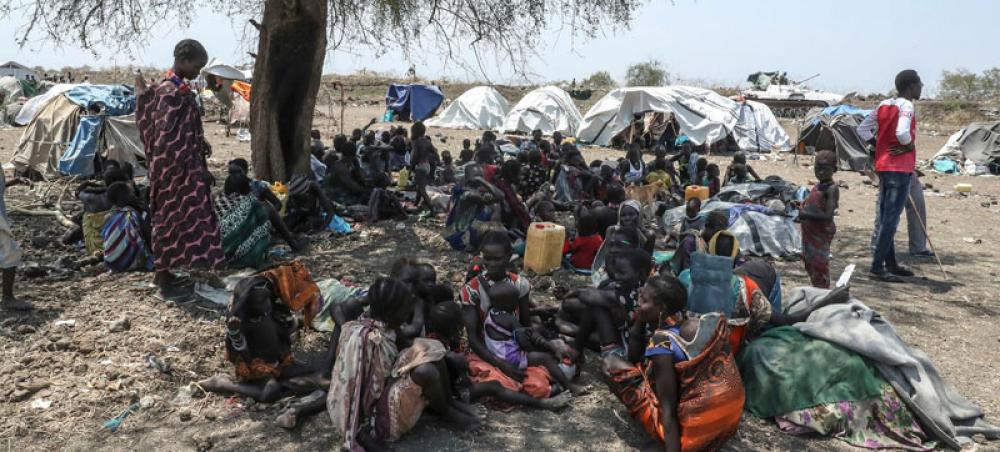Just Earth News | @justearthnews | 16 Mar 2021, 12:54 am Print
 South Sudan
South Sudan Image: UN Photo/Isaac Billy
New York: Military and political officials in South Sudan supporting community-based militias in the Greater Jonglei region, must be held accountable for violence that killed more than 700 people over a six-month period last year, the UN human rights office, OHCHR, said on Monday.
Between January and June 2020, organized and heavily-armed militias from the Dinka, Nuer and Muerle communities, carried out planned and coordinated attacks on villages across Jonglei and the Greater Pibor Administrative Area (GPAA), according to a joint report issued on Monday by the UN Mission in South Sudan (UNMISS) and OHCHR.
“Six months after the last devastating attack in Greater Jonglei, it must be made clear that those key figures at both local and national levels, who deliberately fuelled and exploited localized tensions, will be held accountable”, said UN High Commissioner for Human Rights Michelle Bachelet.
“The risk that these community-based militias will reignite armed violence is too grave to ignore. It is of paramount importance that the Government takes effective steps to ensure that members of the security forces are prevented from supplying weapons from Government stocks to these militias,” she added.
The report underlines that the South Sudanese Government needs to take full responsibility for the harm inflicted on civilians.
Killings, abductions, rape
More than 738 people were killed, and 320 wounded, during the reporting period, while at least 686 women and children were abducted, and 39 women were raped.
The violence also displaced tens of thousands of people. Civilian property and humanitarian facilities were looted or destroyed, and at least 86,000 cattle, worth over $35 million, were stolen.
Although grassroots efforts to reconcile the affected communities have been underway for months, the authorities have not taken meaningful action to investigate and prosecute those responsible, the authors said.
Support in high places
The report found at least 50 traditional chiefs and spiritual leaders, as well as military and political elites, supported the attacks, whether directly or indirectly. Members of Government and opposition forces actively participated in the fighting, according to their kinship, or as part of a calculated move to reinforce political alliances.
UNMISS peacekeepers were deployed to affected areas when the violence erupted, establishing temporary bases and conducting regular patrols in efforts to deter further attacks.
The UN Mission engaged with political and traditional leaders, both at the national and local level, to promote reconciliation and to support efforts to release the hundreds of women and children who were abducted.
The report calls for the Government to finalize the appointment of local administrators and assemblies throughout Jonglei and the GPAA. The authorities are also urged to investigate all allegations of human rights abuses and to prosecute the perpetrators, and to ensure state-owned weapons are securely stored to prevent theft or supply to community-based militias.
The authors also called for immediate action to facilitate the release and reunification of abducted women and children with their families.
- Trump signs 10% global tariff, says it takes effect ‘almost immediately’
- BJP wins a seat in Bangladesh — But not the one you think!
- Meet Shabana Mahmood: Could she take over as UK’s first Pakistani-origin Muslim PM?
- Dalai Lama's Office breaks silence on Epstein claims
- Russia says suspect in shooting of GRU Deputy detained in Dubai





-1763561110.jpg)
